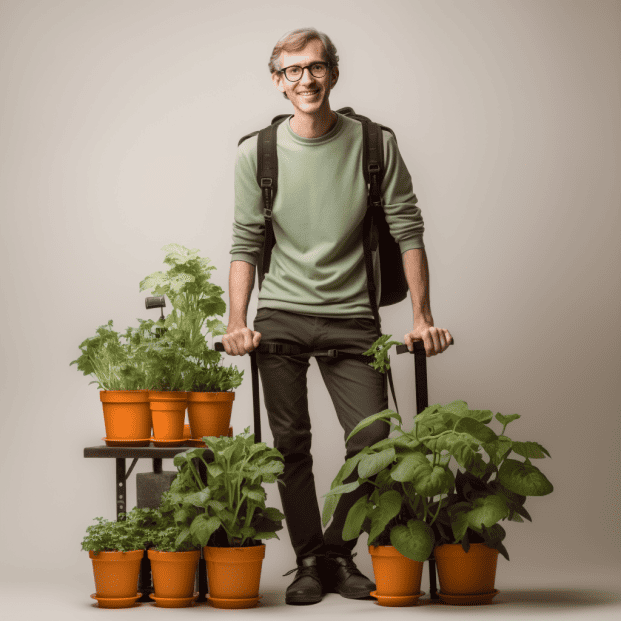Key Takeaway
1. Embracing nature and wellness can enhance relaxation during travels.
2. Simple techniques like deep breathing and mindfulness can help manage stress.
3. Balancing downtime with activities is crucial for a fulfilling travel experience.
Finding relaxation as a constant traveler can be challenging. Frequent trips can lead to stress and fatigue, making it essential to discover ways to unwind. This article shares effective strategies to help travelers find peace on the go. Keep reading to learn how to balance adventure and relaxation for a more enjoyable travel experience.
Embrace Nature and Wellness Escapes
One of the best ways to find relaxation as a constant traveler is to seek out destinations that offer natural beauty and wellness experiences (1). Tropical beaches, serene forests, and peaceful mountains provide soothing scenery that can help travelers unwind. Engaging in activities like hiking, yoga, or spa treatments can enhance relaxation.
For example, planning a trip to a tropical beach can be a perfect escape. The sound of waves crashing and the feel of soft sand beneath your feet create a calming atmosphere. Participating in yoga classes on the beach can also help travelers connect with nature while promoting relaxation. Similarly, visiting tranquil forests for hiking can provide a refreshing break from city life, allowing travelers to immerse themselves in the beauty of nature.
Triggering the Relaxation Response
Understanding how to trigger the body’s relaxation response is vital for travelers. Techniques like deep breathing, meditation, and mindfulness can help reverse the effects of stress.
For instance, taking just a few minutes each day to practice deep breathing can significantly improve a traveler’s experience. Before boarding a flight, travelers can close their eyes, inhale deeply through their noses, hold for a few seconds, and then exhale slowly through their mouths. This simple practice can calm nerves and set a positive tone for the trip. Additionally, incorporating short meditation sessions into the daily routine can help travelers stay centered and focused, making it easier to enjoy their adventures.
Balancing Relaxation and Adventure
Finding the right balance between relaxation and adventure is key for constant travelers. It’s important to plan itineraries that allow for downtime.
This could mean scheduling leisurely mornings where travelers can enjoy their surroundings without feeling rushed. For example, instead of cramming in multiple activities in one day, travelers can choose to explore a new city at a slower pace. Spending a lazy afternoon at a café, sipping coffee, and people-watching can provide a much-needed break from sightseeing. This balance allows travelers to recharge and fully appreciate their experiences without feeling overwhelmed.
Managing Travel Anxiety
Traveling can trigger anxiety for some people. Having strategies in place can make trips more enjoyable. Techniques such as focusing on breathing, engaging in creative activities, or spending time in nature can help alleviate stress.
For instance, if crowded airports or long flights cause anxiety, travelers can prepare by bringing along calming items. A favorite book, soothing music, or even a travel journal can create a comforting atmosphere during travel. Engaging in creative activities, like sketching or writing, can also serve as a distraction from stressors, allowing travelers to focus on the joy of the journey.
Tips for True Relaxation
To avoid feeling like you need a vacation from your vacation, consider expert-approved tips for relaxation. Setting realistic expectations for trips can help travelers enjoy their experiences without pressure.
Allowing for spontaneity and ensuring moments of quiet reflection during travels can also enhance relaxation. For example, taking a few minutes each day to journal can help process experiences and promote a sense of calm. Writing down thoughts and feelings can also serve as a therapeutic outlet, allowing travelers to reflect on their adventures and appreciate the journey.
The Importance of Relaxation
Relaxation is not just a luxury; it’s essential for maintaining mental and physical health, especially for frequent travelers. Engaging in relaxation techniques can help mitigate the stress that comes with constant movement.
For instance, practicing mindfulness can help travelers stay grounded and present, making their journeys more enjoyable. Mindfulness techniques, such as focusing on the sensations of the environment or the taste of food, can enhance the travel experience and create lasting memories.
Mindfulness and Relaxation
Incorporating mindfulness practices, such as meditation or deep breathing, can significantly enhance relaxation while traveling (2). These techniques help travelers focus on the present moment, reducing anxiety and improving overall enjoyment.
For example, taking a few moments to breathe deeply while watching a sunset can create a memorable and peaceful experience. Mindfulness not only enhances relaxation but also allows travelers to fully engage with their surroundings, making every moment more meaningful.
Creating a Relaxation Routine
Establishing a relaxation routine can be beneficial for constant travelers. This routine can include daily practices that promote relaxation, such as morning stretches, evening meditation, or even a gratitude journal.
Creating a consistent routine helps travelers incorporate relaxation into their busy schedules. For example, setting aside time each morning for a few stretches can help ease tension and prepare the body for the day ahead. Similarly, dedicating time in the evening to reflect on the day’s experiences can promote a sense of closure and peace before sleep.
Finding Relaxation-Friendly Destinations
Choosing the right destinations can also play a significant role in finding relaxation while traveling. Some locations are specifically designed for relaxation, offering breathtaking views and calming atmospheres.
For instance, wellness retreats in serene locations provide opportunities for relaxation through yoga, meditation, and spa treatments. These retreats often focus on holistic well-being, allowing travelers to rejuvenate their minds and bodies. Researching and selecting relaxation-friendly destinations can enhance the overall travel experience.
FAQ
How can I find quiet places in busy tourist destinations?
To find quiet places in busy tourist spots, look for local parks, gardens, or less popular neighborhoods. Using apps like Google Maps to search for parks or reading travel blogs that highlight hidden gems can also help you discover peaceful spots away from the crowds.
What are some travel-friendly relaxation tools I can bring?
Consider bringing portable relaxation tools like noise-canceling headphones, a travel-sized essential oil diffuser, or a compact yoga mat. These items can enhance your ability to relax, whether you’re on a plane, in a hotel room, or at a park.
How can I practice relaxation techniques without looking strange in public?
You can practice relaxation techniques discreetly by focusing on your breath or using visualization techniques. For example, you can take deep breaths while sitting quietly or visualize a calming scene in your mind without drawing attention to yourself.
What role does nutrition play in relaxation while traveling?
Nutrition plays a significant role in relaxation. Eating balanced meals with plenty of fruits, vegetables, and whole grains can help stabilize your mood and energy levels. Staying hydrated is also crucial, as dehydration can lead to fatigue and irritability.
Are there specific apps that can help with relaxation while traveling?
Yes, there are several apps designed to help with relaxation, such as Headspace for guided meditation, Calm for sleep stories and relaxation music, and Insight Timer for mindfulness practices. These apps can be great companions during your travels.
How can I maintain a sense of routine while traveling?
To maintain a sense of routine while traveling, try to stick to regular meal times, sleep schedules, and exercise habits. Even small rituals, like morning coffee or evening reflection, can help create a sense of normalcy amidst the chaos of travel.
What are some relaxation practices specific to different cultures?
Different cultures have unique relaxation practices. For example, Japanese onsen (hot springs) promote relaxation through bathing, while Scandinavian countries emphasize sauna use. Exploring these cultural practices can enhance your travel experience and provide new ways to unwind.
How do I handle travel-related guilt when taking time to relax?
Travel-related guilt is common, but it’s essential to remember that relaxation is part of the travel experience. Remind yourself that taking time to recharge allows you to enjoy your adventures more fully. Embrace the idea that relaxation is not a waste of time but a necessary component of a fulfilling journey.
What should I do if I have trouble sleeping in new environments?
If you have trouble sleeping in new places, create a calming bedtime routine. Bring familiar items like a favorite pillow or blanket, use a sleep mask, and consider white noise apps to drown out unfamiliar sounds. Establishing a consistent sleep schedule can also help your body adjust to new environments.
What are some signs that I need to prioritize relaxation during my travels?
Signs that you need to prioritize relaxation include feeling irritable, fatigued, or overwhelmed. If you notice that you’re not enjoying your experiences or are constantly seeking downtime, it may be time to slow down and incorporate more relaxation into your itinerary.
Conclusion
Finding relaxation as a constant traveler is essential for enjoying the journey. By embracing nature, practicing mindfulness, and balancing adventure with downtime, travelers can enhance their experiences. Prioritizing relaxation not only improves well-being but also makes every trip more fulfilling and enjoyable. Remember, taking time to unwind is just as important as the adventures themselves.
Related Articles
- https://timecurvesoft.com/maintaining-a-healthy-diet-while-traveling/
- https://timecurvesoft.com/packing-list-overland-track/
- https://timecurvesoft.com/travel-warnings-for-digital-nomads/
References
- https://thevillagehostels.com.au/blog/self-care-tips-for-traveller/
- https://connectpls.com/practicing-mindfulness-in-travel-techniques-for-staying-present-and-grounded/
Was this helpful?

I’m Robert C. L., an associate professor of management at Washington & Jefferson College. With a Ph.D. in industrial/organizational psychology from The Ohio State University, my passion lies in exploring the realms of creativity, innovation, and the evolving landscape of work. Delving into the digital frontier, my expertise extends to the world of digital nomads, remote work, and the liberating concept of travel freedom. I’m also an author of the book “Digital Nomads: In Search of Freedom, Community, and Meaningful Work in the New Economy” which is sold on Amazon. As a dedicated mind behind timecurvesoft.com, I’m committed to unraveling the dynamics of the digital workforce and sharing insights into the future of work. Join me on this journey of exploration and discovery!

